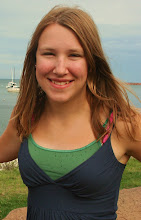From The Frontier Of Writing
Seamus Heaney
The tightness and the nilness round that space
when the car stops in the road, the troops inspect
its make and number and, as one bends his face
towards your window, you catch sight of more
on a hill beyond, eyeing with intent
down cradled guns that hold you under cover
and everything is pure interrogation
until a rifle motions and you move
with guarded unconcerned acceleration—
a little emptier, a little spent
as always by that quiver in the self,
subjugated, yes, and obedient.
So you drive on to the frontier of writing
where it happens again. The guns on tripods;
the sergeant with his on-off mike repeating
data about you, waiting for the squawk
of clearance; the marksman training down
out of the sun upon you like a hawk.
And suddenly you're through, arraigned yet freed,
as if you'd passed from behind a waterfall
on the black current of a tarmac road
past armor-plated vehicles, out between
the posted soldiers flowing and receding
like tree shadows into the polished windscreen.
Commentary:
In "The Frontier of Writing," Seamus Heaney uses a conceit comparing editing to a border checkpoint to emphasize the freedom writing offers and the satisfaction of being accepted. Heaney explains the tensions associated with writing publicly, but the same metaphor that describes the extreme scrutiny of critics also reveals the ultimate appeal of writing.
The extended metaphor in this poem compares publishing, the final step of writing, to a border checkpoint. In both the literal and symbolic sense, this puts the person being inspected at the mercy of a ruthless system. The original tone within this conceit is nervous. Diction such as "tightness", "inspect", "interrogation", "guarded", and "emptier" help to create this tone. Heaney uses this nervous tone to express a serious dislike for the troops, which symbolize editors. He shows the soldiers as less than human; Heaney says "a rifle motions," and he uses rifle instead of soldier to point out that the soldier's only power is in his gun. He mentions the "guns on tripods," and compares the snipers to hawks, which once again states the troop's lack of humanity, but it also shows that the editors are ready to shoot, and they assume they will have to. He sees critics, publishers, and editors as evil, emotionless killing machines, determined to block writers from their honest, innocent work.
Heaney then shifts to a tone contrasting to the tension felt early in the poem. When he says, "suddenly you're through," the tension lifts instantly, and the freedom and opportunity that writing provides is expressed. He calls the road after the block the "frontier of writing," which implies that writing can be limitless and full of opportunities. Heaney describes the freedom that being allowed through the block or finally accepted by publishers cause; it's "as if you'd passed from behind a waterfall on the black current of a tarmac road," which explains the lack of blocks on a writer when he (or she) receives a clean slate. When something gets published, and you simply start over again from scratch, and that experience is cleansing but difficult, like passing under a waterfall.
This poem demonstrates the appeal of writing. Heaney says, "where it happens again." The speaker is willing goes through the hell of intense scrutiny and humiliation to feel the freedom when he comes out the other end. While in the moment, the troops are terrifying, but as you pass they become harmless memories. The freedom of the "frontier of writing" pulls people back in; they will put up with all sorts of danger and tension to experience that extreme freedom.
Subscribe to:
Post Comments (Atom)

5 comments:
yeah i think this is about how stressful writing can be. esp. when you have other people listening/criticizing your writing.
i like the words he uses and how he compares writing to a checkpoint. it's so true!
I love this poem, its def one of my faves and i agree with kristin in that it can be stressful to write more when u have cirtics who only point out the errors u make, i guess it can just apply to everything in live not just writting!!!!
Your post was really insightful, but while reading it one thing jumped out at me. When you said "He sees critics, publishers, and editors as evil, emotionless killing machines, determined to block writers from their honest, innocent work" I think, maybe like the soliders, they have a job, and like the soliders it is to keep order.
I agree with what you've said in your commentary as well. Heaney does use a very extended metaphor in the poem with the car and the troops, symbolizing real life writers and editors. I like the way you've explained how Heaney uses this metaphor and creates a very negative image for the editors, it makes everything a little clearer.
I really enjoyed this poem and agree this has great imagery and diction of the events occuring but i can also see how it parallels so smoothly. everytime you finish wrighting you feel as although you have completed a check point.
Post a Comment